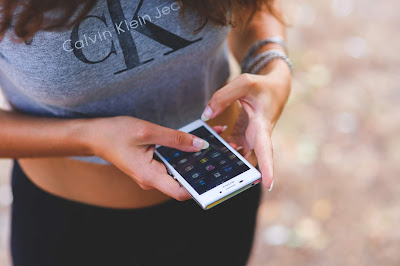"For immature women, exercise and sleep might have a lot of impact on the mental state than social media"-- Saldic Getty.
Social media isn’t essentially unhealthy for teens’ mental health –
It solely causes issues for immature women once it interferes with sleep and exercise or allows cyberbullying.
Boys don’t appear to be effected within the same manner.
“The message is simple: don’t worry such a lot regarding what proportion your youngsters are on social media throughout the day,” says Russell Viner at the university faculty of London nice Ormond Street Institute of kid Health within the UK.
“Worry regarding what they’re looking at, the content, and ensure they get enough sleep and physical activity.”
Viner and his colleagues have checked out information already collected as a part of another giant study on youngsters in England.
As a part of that study, 12,866 individuals aged between thirteen and fourteen were interviewed in 2013.
The participants stuffed in questionnaires regarding their mental state and welfare – together with their levels of sleep and physical activity – in addition as their experiences of cyberbullying.
Every person was asked however oftentimes they used social media networks, electronic messaging or photo-sharing services, together with Facebook, Twitter, Instagram, WhatsApp, Blackberry traveller, Snapchat, Tumblr, or anything.
However social media itself isn’t essentially answerable, says Viner.
Once his team accounted for sleep, physical activity and cyberbullying, the impact of frequent social media use on the girls’ welfare became insignificant. this implies that social media solely becomes problematic for immature women once it starts to impact their sleep, exercise or exposure to bullying.
“Bullying in the flesh remains way more common than cyberbullying. nearly no one is cyberbullied who isn’t additionally being browbeaten face-to-face,” says Dasha Nicholls at Imperial faculty London within the UK, who co-authored the study.
Tacking care of bullying itself have a lot of possibilities to enhance welfare than cutting a teenager’s access to social media, the team says.
Social media additionally usually plays a positive role during a young person’s life, says Michelle O’Reilly at the University of Leicester within the UK. “Some youngsters use social media in quite negative ways that, whereas others are using social media to find out things, for his or her preparation for exams and their relationships,” she says.
Viner’s team didn’t see an identical pattern in boys. a lot of frequent social media use will appear to be joined to more psychological distress in boys, however, doesn’t appear to impact their happiness or satisfaction with life.
The link between social media use and psychological distress in boys was partly explained by cyberbullying, sleep and exercise, however not utterly. “We can’t extremely perceive what this distinction by sex is regarding,” says Nicholls.
The findings won’t hold true for all immature women and boys, either, she says. “These are generalisations – there are vulnerable boys and there are a lot of resilient immature women.”
Within the meanwhile, Viner and Nicholls suggest that involved oldsters strive to not worry regarding what proportion time their teenagers pay on social media. “It’s not that the screens themselves are noxious,” says Viner.
Instead, it's necessary to encourage exercise and sleep – Nicholls recommends ten hours for teens aged thirteen to sixteen – and to raise regarding the content they're viewing online.
Journal reference: The Lancet kid & Adolescent Health, DOI: 10.1016/S2352-4642(19)30186-5 a lot of on these topics:



